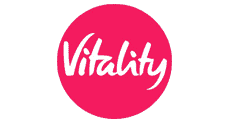What Does Medical Insurance Underwriting Mean?
Written By: Stuart Hendy
What Does Medical Insurance Underwriting Mean?
Medical insurance underwriting involves two main ways to assess your health and medical history: “moratorium underwriting” and “full medical underwriting.” Insurance companies use these methods to figure out how risky it might be to insure you and decide on the right price, cover details, and whether any existing health conditions won’t be covered. This thorough process is really important because it helps make sure your insurance is priced accurately, and you get the right cover
Get Tailored Health Insurance Quotes from Top UK Insurers
What is Moratorium Underwriting?
This underwriting type lets you get a policy, even if you’ve had pre-existing conditions in the past 5 years. However, these prior health issues won’t be covered for the first two years, as long as you stay free of symptoms, medications, and treatments during this period. Many insurance companies like this approach because it offers flexibility for recurring health problems. It means you can get insurance while keeping your premiums affordable, but there’s a waiting period for previous conditions. In simple terms, it’s a way to access cover with some limitations.
What is rolling moratorium medical underwriting?
A rolling moratorium health insurance offers cover if no treatment or advice is sought for a pre-existing condition during the qualifying period. Seeking treatment restarts the policy start date. Some conditions requiring continuous treatment aren’t covered. Fixed moratoriums maintain the same qualifying period regardless of treatment.
If, for instance, you injured your leg three years ago and initiated a moratorium underwriting for that leg, medical treatments won’t be covered for the next two years unless you experience symptoms, receive treatment, or take medication. If you see your GP during this period, the two-year waiting period resets from that visit, requiring another two-year wait for insurance to cover that leg.
What impact does moratorium underwriting have when you make a claim?
This underwriting type affects the claims process as the insurer lacks your complete medical history. They will request additional medical information when you make a claim, especially if it’s early in your policy, to ensure it’s unrelated to excluded pre-existing conditions.
Your doctor might need to confirm that you couldn’t have foreseen the claimed condition before joining the policy, determining if it’s new or pre-existing. Excluded conditions can’t be claimed for at least two years, and some may never be claimable, even after the underwriting period.
Understanding Pre-Existing Condition Exclusions
Pre-existing conditions are the health issues you had before getting your insurance. It often considers only the past 5 years, not your entire health history. If you stay symptom-free and don’t require medication or treatment for these conditions for 2 years, they can be covered.
However, chronic conditions like asthma and arthritis may remain permanently excluded from your policy. It’s essential to be aware of these terms and exclusions when reviewing your policy, as they can significantly impact your policy.
What is Full Medical Underwriting (FMU)?
FMU is like the deep dive of health insurance assessments. It’s where you share all the details about your health history and current conditions. This helps the insurance company understand your unique situation and offer you personalised private medical cover. Remember, though, that this thorough underwriting process might lead to slightly higher premiums or exclusions for pre-existing conditions.
Difference Between Moratorium and Full Medical Underwriting
Moratorium Underwriting and FMU are two different approaches to assessing an individual’s eligibility and coverage in health insurance:
| Moratorium Underwriting | Full Medica Underwriting |
| Quicker and Simplified | Involves detailed assessment. |
| Only 5-years’ history considered | Considers the complete medical history |
| Pre-existing conditions excluded for 2 years. | More precise risk assessment will be provided. |
| Requires less personal information. | Permanent exclusions may be applied |
The choice between the two methods depends on an individual’s health history, preferences, and insurance company policies. Moratorium underwriting is simpler and faster, but it may lead to exclusions for pre-existing conditions. FMU offers a more detailed assessment but may result in a more tailored coverage plan.
Advantages of Moratorium Underwriting
Moratorium underwriting has some great benefits that can make it a good choice for getting private health insurance. It can save you money, speed up the process, and reduce the time you have to wait for coverage on pre-existing conditions. This makes it easier for more people to get health insurance, especially if you don’t want a long, complicated medical history check.
| Advantages | |
| Lower Costs | Often results in more affordable private health insurance premiums. |
| Quick Implementation | You can bypass the extensive medical declaration process, leading to faster enrollment. |
| Shorter Pre-existing Condition Exclusion | You won’t face exclusions for conditions or illnesses from many years ago, making coverage accessible sooner. |
| Reduced Disclosure | Typically requires less disclosure of your complete medical history, simplifying the application process. |
| Access to Coverage | Can provide an option for those who might otherwise struggle to secure health insurance due to pre-existing conditions. |
Using this underwriting type for private health insurance has some benefits, but it’s also essential to know about the drawbacks that come with this method.
| Disadvantages | |
| Automatic Exclusion | Conditions from the past five years are automatically excluded, limiting coverage. |
| Longer Claims Process | Health insurance providers don’t have your complete medical history, so it may take longer to assess and process claims. |
| Impact of Advice and Symptoms | Even consultations, diagnostic tests, and medications can affect your policy terms. |
| Unclear Coverage | Understanding precisely what your policy covers can be challenging, potentially leading to confusion or unexpected limitations. |
Other underwriting options
Alternative underwriting options provide various approaches to health insurance, each with distinct features and considerations.
Other underwriting options
Under this approach, individuals maintain the moratorium on pre-existing conditions that they had in their previous policy. This means that any conditions that were excluded in the prior policy remain excluded for a certain period under the new policy. However, it offers the advantage of continuity, as the waiting period does not reset.
Medical history disregarded (MHD)
Some insurers offer policies where your complete medical history is disregarded. This means that pre-existing conditions, regardless of their age or when they were diagnosed, may be covered immediately or with shorter exclusion periods. This can be beneficial for those seeking coverage without any waiting time related to existing health conditions.
Continued personal medical exclusions
In this scenario, pre-existing conditions excluded under the previous policy continue to be excluded in the new policy. This may be a practical choice if you want to preserve the coverage terms you had before.
The Waiting Period Understanding
In health insurance, a moratorium policy waiting period is common. During this two-year period, specific pre-existing medical conditions are not covered. To maintain coverage, you must remain symptoms-free, treatment or medical advice-free for these conditions.
Conditions Covered After Waiting Period
After the waiting period for health insurance, various conditions become eligible for coverage. These typically include:
✔️ Preventive Care- Some policies include coverage for preventive care, including check-ups, vaccinations, and screenings.
✔️ New Medical Conditions Medical conditions that arise after the waiting period ends are generally covered.
✔️ Pre-Existing Conditions- Pre-existing conditions that were disclosed during the application process and accepted by the insurance provider may also become covered.
✔️ Conditions Listed in the Policy- Conditions explicitly mentioned in the policy, such as hospitalisation, surgeries, and prescribed medications, are often covered.
✔️ Preventive Care- Some policies include coverage for preventive care, including check-ups, vaccinations, and screenings.
Conditions That Remain Excluded
Certain conditions may remain excluded from coverage even after the waiting period ends. These typically include:
✖️ Chronic Conditions
Chronic conditions, which are long-term and ongoing, may continue to be excluded from coverage. These conditions often require continuous medical attention and treatment.
✖️ Conditions Requiring Treatment
Conditions for which you sought treatments, medications, or medical attention during the waiting period may still be excluded from coverage.
✖️ Symptoms of Excluded Conditions
If you experienced symptoms related to excluded conditions and sought medical advice or treatment during the waiting period, coverage for these conditions may still be restricted.
What are the possible outcomes of medical underwriting?
When you apply for health insurance in the UK, medical underwriting can lead to different results:
- Accepted as normal – Your application is approved with no changes to the price or coverage.
- Higher price – If you have health risks, you may still get cover but with a higher cost.
- Some things not covered – The insurer might approve your policy but exclude certain health conditions.
- Delayed decision – The insurer may ask you to wait, especially if they need more medical info.
- Declined – Your application is rejected if the risk is too high.
Hence, health insurance brokers are the best option when choosing health insurance. They will explain the pros and cons of each underwriting outcome and take responsibility for making sure everything is clearly explained to you.
Changing Your Provider
If you notice that the cost of your health insurance is going up or you’re not satisfied with your current provider, you have the option to change to a different insurer using Continued Personal Medical Exclusions (CPME) underwriting terms. This allows for cost-effective alternatives and improved healthcare cover.
Reviewing Policy Terms (Exclusions and Waiting Periods)
Before switching insurers, it’s important to clearly understand the policy terms, including any exclusions or waiting periods. This knowledge ensures a smoother claims process, minimising potential shortfalls and surprises down the road.
Matching Your Health History to Underwriting Type
Ensure that the underwriting terms you choose match your health history. While some brokers may suggest moratorium terms for lower costs, this means beginning afresh with your medical history. It’s crucial to pick the underwriting approach that best fits your specific health needs and background.
How can we help: Brokers vs. Direct Application
Our team of health insurance experts at PremierPMI will provide personalised guidance at every stage, offering tailored quotes and assistance with your claims. Choosing a direct application may limit your options, and you won’t have the opportunity to compare prices effectively.
FAQ
Sources
- https://www.freedomhealthinsurance.co.uk/about-underwriting
- https://www.metlife.co.uk/intermediary/employee-benefits/knowledge-expertise/metlife-academy/technical/a-quick-guide-to-medical-underwriting/
- https://www.wpa.org.uk/help/what-is-underwriting
- https://www.allianzcare.com/en/about-us/blog/full-medical-Underwriting-versus-moratorium-health-insurance.html
Other types of health insurance policies

Have any questions?
Send us a message and one of our dedicated advisors will contact you shortly.













